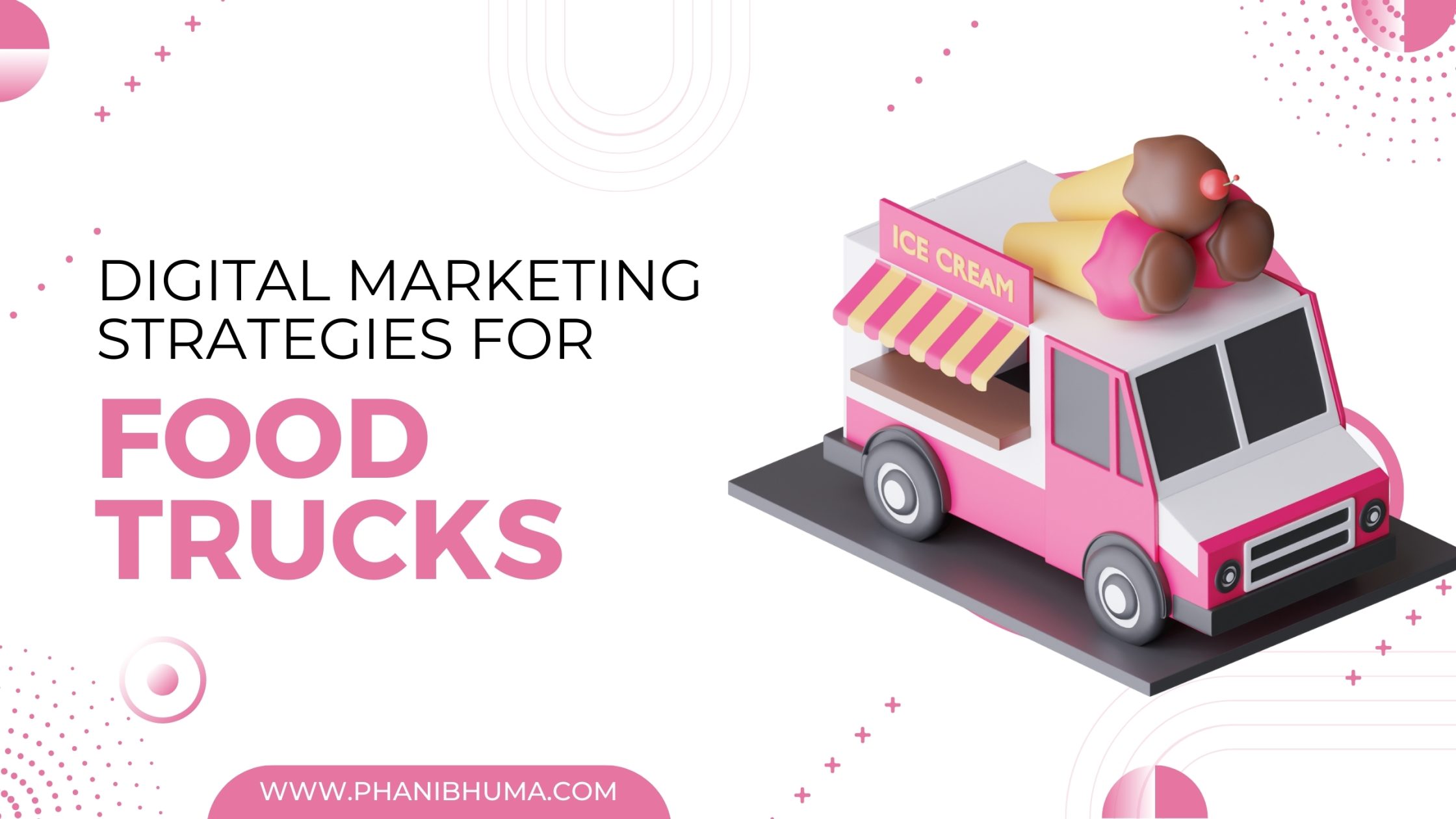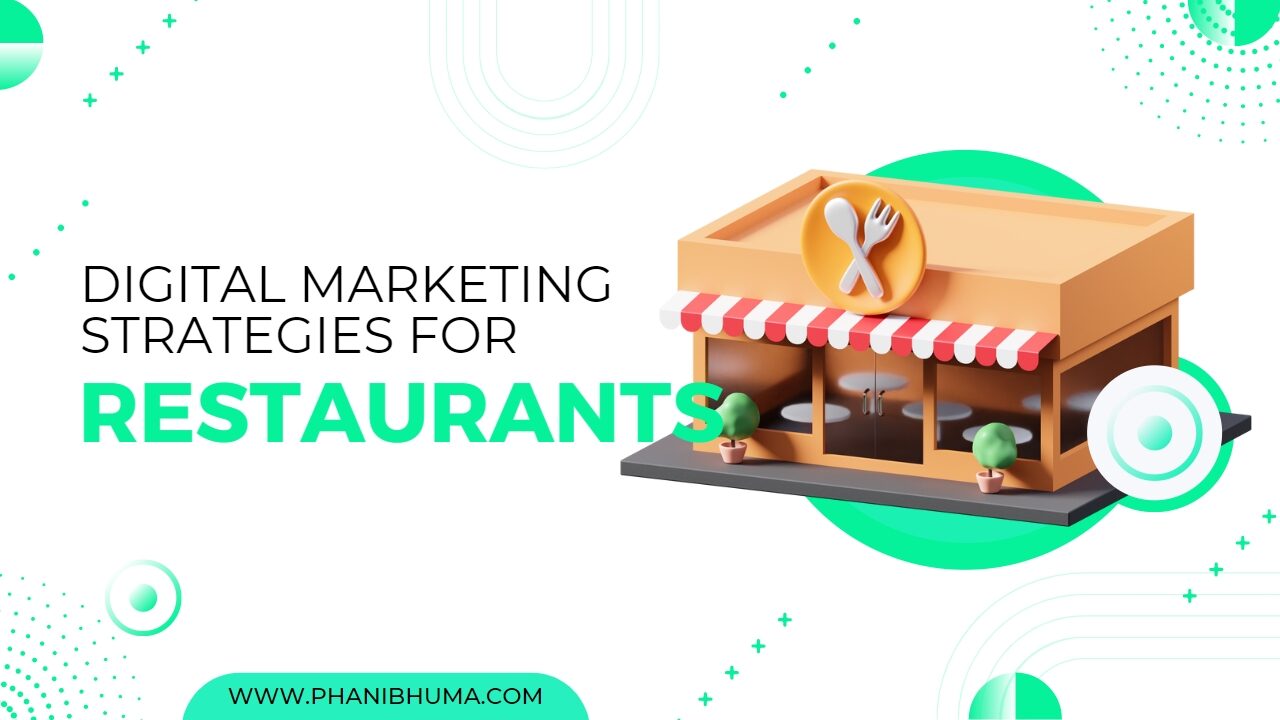Welcome to our blog post on the top digital marketing strategies for food trucks. Whether you’re a new food truck owner or looking to take your existing business to the next level, having a strong digital marketing strategy is crucial for success in today’s competitive market. In this post, we’ll walk you through key strategies that will help you attract more customers and increase your sales using the power of digital marketing.
When it comes to promoting your food truck, it’s essential to have a strong online presence. With so many food options available, standing out in the digital landscape is crucial. Utilizing social media and mobile marketing can help you reach your target audience and build a loyal customer base. Additionally, implementing effective SEO strategies can help your food truck rank higher in search results, making it easier for potential customers to find you. We’ll provide you with valuable insights and tips to make sure your digital marketing efforts are well-targeted and successful.

Building a Strong Online Presence
One of the most crucial aspects of successful digital marketing for your food truck is establishing a strong online presence. In today’s digital age, your potential customers are likely to discover your business online before making a decision to visit. Here are some key strategies to help you build and maintain a robust online presence for your food truck.
Developing an Engaging Website
Having a professional and engaging website is essential for your food truck’s online presence. Your website is often the first point of contact between you and your potential customers, so it’s important to make a great impression. When someone lands on your website, you want to instantly capture their attention with mouth-watering food images, a clear menu, and easy access to your location and schedule.
Furthermore, your website should reflect the personality and unique offerings of your food truck. By incorporating your brand’s colors, fonts, and style into the design, you create a cohesive and memorable experience for your visitors. Your website should also be mobile-friendly to ensure a seamless browsing experience for customers on the go.
Leveraging SEO for Local Discoverability
When it comes to local businesses like food trucks, leveraging search engine optimization (SEO) is crucial for increasing your online visibility and discoverability. By optimizing your website and content for relevant keywords, you can improve your chances of appearing in local search results when potential customers are looking for food options in your area.
Include keywords related to your cuisine, location, and unique offerings throughout your website and content. Additionally, claim and optimize your Google My Business listing to ensure that your food truck shows up in local searches, complete with your address, phone number, and customer reviews. This will not only improve your search engine rankings but also make it easier for hungry customers to find and visit your food truck.
By focusing on these strategies, you can establish a strong online presence that not only attracts new customers but also keeps them coming back for more. Don’t underestimate the power of a well-designed website and strategic SEO efforts. Your online presence can make a significant impact on the success of your food truck business, so make sure you invest the time and resources to get it right.
Utilizing Social Media Effectively
Obviously, social media is a powerful tool for any food truck business. It allows you to connect with your audience, showcase your menu, and build a community around your brand. However, using social media effectively is essential to maximize its impact on your business.
Choosing the Right Platforms for Your Audience
When it comes to social media, not all platforms are created equal. You need to choose the right ones that resonate with your target audience. Are you targeting younger consumers who are active on platforms like Instagram and TikTok? Or are you looking to reach an older demographic who are more engaged on Facebook and Twitter? Knowing your audience is key to selecting the platforms that will best promote your food truck.
It’s crucial to do your research and understand where your potential customers spend their time. By focusing on the platforms where your audience is most active, you can tailor your content to better engage with them, ultimately driving more traffic to your food truck.
Crafting Engaging Content and Building a Community
Once you’ve identified the right social media platforms for your food truck, the next step is to craft engaging content that resonates with your audience. This could be enticing food photos, behind-the-scenes insights, or customer testimonials. By creating valuable and shareable content, you can start building a community around your food truck brand.
Additionally, engaging with your followers by responding to comments, asking questions, and running contests can help foster a sense of community and loyalty among your audience. Remember, engagement is key to building a strong and loyal following on social media.
Email Marketing Strategies
Lastly, email marketing is a crucial strategy for food trucks to stay connected with their customers and build a loyal following. By utilizing email marketing, you can reach your audience directly in their inbox, providing them with valuable content and promotions to keep them engaged and coming back for more.
Building Your Subscriber List
Building your email subscriber list is the first step in successful email marketing. Encourage people to join your list by offering an incentive, such as a discount on their next purchase or a freebie with their first order. You can also collect email addresses by having a sign-up sheet at your food truck or promoting your newsletter on your social media channels. Make sure to also ask for permission to email your customers, ensuring you comply with anti-spam laws.
Creating Compelling Newsletters and Promotions
Once you have a solid list of subscribers, it’s time to start sending out compelling newsletters and promotions. Your emails should provide value to your audience, whether it’s sharing behind-the-scenes stories of your food truck, highlighting special menu items, or offering exclusive discounts. Use eye-catching visuals and persuasive language to entice your subscribers to visit your truck.
By implementing enticing subject lines and engaging content, you can significantly increase your open and click-through rates. It’s also important to segment your email list based on customer preferences and behaviors to ensure you’re sending relevant content to the right people. Consistency is key when it comes to email marketing, so make sure you’re regularly sending out newsletters and promotions to stay top of mind for your customers.
Don’t miss out on this powerful marketing channel. Start building your email list and crafting compelling newsletters to keep your food truck top of mind for your customers.
Online Advertising Tactics
Your food truck business can greatly benefit from effective online advertising tactics. By reaching your target audience through digital channels, you can boost your brand awareness and attract more customers. Here are some key strategies to consider:
Harnessing the Power of Google Ads
When it comes to online advertising, Google Ads is a powerful tool that can help you reach potential customers who are actively searching for food trucks in your area. By creating targeted ads and bidding on relevant keywords, you can increase your visibility on Google search results and attract more traffic to your website or social media profiles. With Google Ads, you have the ability to set your budget, monitor the performance of your ads, and make adjustments to optimize your campaign for better results.
Exploring Social Media Advertising
Social media platforms like Facebook, Instagram, and Twitter offer immense opportunities for food truck owners to showcase their offerings and engage with their audience. With a well-crafted social media advertising strategy, you can create visually appealing ads that target specific demographics, interests, and behaviors. By leveraging the sophisticated targeting options available on these platforms, you can maximize the impact of your ad campaigns and drive more traffic to your food truck.
By harnessing the power of Google Ads, you can ensure that your food truck is visible to potential customers when they are actively searching for similar offerings. Meanwhile, exploring social media advertising provides an opportunity to engage with a broader audience and build a loyal following. With the ability to target specific demographics and interests, you can ensure that your ads reach the right people at the right time. As you continue to implement these online advertising tactics, you will be able to measure the success of your campaigns and make data-driven decisions to improve your overall digital marketing strategy.
Leveraging Local Partnerships and Events
After establishing a strong digital presence, another effective strategy for your food truck is to leverage local partnerships and events. By collaborating with local businesses and participating in food truck festivals and pop-up events, you can expand your reach and attract more customers to your mobile kitchen.
Collaborating with Local Businesses
Collaborating with local businesses can be a win-win situation for both parties. You can offer exclusive deals or discounts to their customers, and in return, they can promote your food truck to their loyal clientele. For example, you can partner with a nearby brewery and offer a special pairing menu with their craft beers. This not only increases foot traffic to your truck but also exposes your brand to a whole new customer base.
Participating in Food Truck Festivals and Pop-Up Events
Participating in food truck festivals and pop-up events allows you to showcase your culinary creations to a large crowd of food enthusiasts. These events are not only great for making direct sales but also for networking with other food vendors and potential business partners. Additionally, it provides an opportunity to gain valuable feedback and insight from a diverse customer base, helping you fine-tune your menu offerings and overall experience.
By collaborating with local businesses and participating in food truck festivals and pop-up events, you can maximize your exposure and draw in a wider audience. This can also lead to valuable partnerships and opportunities for growth. Remember, the more you put yourself out there, the more chances you have to attract potential customers and build a strong community around your food truck. Ready to take the next step and learn more about how to effectively use social media for your food truck? Check out our article on Social Media for Food Trucks: A Brand-Building Guide.
Reputation Management and Customer Reviews
However, reputation management and customer reviews play a critical role in the success of your food truck. Your online reputation can significantly impact your customer base and revenue. In fact, 7 free marketing ideas for food trucks include managing your online reputation as one of the primary strategies for success. Positive reviews and a strong reputation can attract new customers, while negative reviews can drive them away. Therefore, it’s essential to actively manage and monitor your online reputation to ensure your food truck remains competitive in the digital age.
Monitoring and Responding to Online Reviews
When it comes to reputation management, monitoring and responding to online reviews is crucial. Whether the feedback is positive or negative, it’s essential to engage with your customers. Responding to reviews shows that you value customer feedback and are committed to making improvements. Additionally, addressing negative reviews promptly and professionally can help mitigate their impact and even turn dissatisfied customers into loyal ones. By monitoring and responding to online reviews, you can demonstrate to potential customers that you care about their experience and are dedicated to providing excellent service.
Encouraging Customer Feedback
Encouraging customer feedback is another essential aspect of reputation management. Positive reviews can influence potential customers to try your food truck, while negative reviews can be used as constructive criticism to improve your offering. Encouraging customers to leave feedback, whether through social media, review websites, or in-person interactions, is crucial for maintaining a strong online reputation. By actively seeking customer feedback, you can stay ahead of potential issues and continuously improve your food truck’s offerings and customer experience.
Analyzing and Adapting Your Strategies
Now that you have implemented various digital marketing strategies for your food truck, it’s important to regularly analyze their performance and adapt them as needed. Utilizing analytics and data insights will allow you to make informed decisions and optimize your marketing efforts for better results.
Using Analytics to Track Performance
One of the most powerful tools at your disposal is data analytics. By tracking key performance indicators such as website traffic, social media engagement, and email open rates, you can gain valuable insights into what is working and what needs improvement. This data can help you understand your target audience better and tailor your marketing strategies to their preferences. You can also use tools such as Google Analytics and social media insights to track the effectiveness of your campaigns and make data-driven decisions.
Adjusting Tactics Based on Data Insights
Once you have gathered and analyzed the data, it’s crucial to adjust your tactics accordingly. If you notice that a particular social media platform is driving the most engagement, you can focus more on that channel and optimize your content for better results. On the other hand, if a certain advertising campaign is not yielding the expected results, you can reallocate your budget to more effective channels. It’s important to be agile and willing to make changes based on the insights you gather from your analytics.
By using **analytics**, you can **gain valuable insights** into the performance of your digital marketing strategies and make **informed decisions** to optimize your efforts. Using tools such as Google Analytics and social media insights can help you **track the effectiveness** of your campaigns and make **data-driven decisions**. Once you have gathered and analyzed the data, it’s crucial to be **agile** and willing to make changes based on the insights you gather from your analytics. This will allow you to **adapt** your tactics to better reach your target audience and **maximize your marketing efforts** for your food truck business.
Conclusion
With these considerations in mind, you can effectively implement top digital marketing strategies for your food truck. From creating a strong online presence to utilizing social media and email marketing, you have a variety of tools at your disposal to reach and engage with your target audience. By staying consistent and creative with your approach, you can increase brand awareness, attract more customers, and ultimately grow your business in the competitive food truck industry.
For more food truck marketing ideas and inspiration, check out this helpful resource: 10 Best Food Truck Marketing Ideas.
FAQ
Q: What are the top digital marketing strategies for food trucks?
A: The top digital marketing strategies for food trucks include creating a strong social media presence, utilizing email marketing, and optimizing your website for local search.
Q: How can a food truck create a strong social media presence?
A: To create a strong social media presence, a food truck can consistently post engaging content, interact with followers and other local businesses, and use targeted advertising to reach potential customers in their area.
Q: Why is optimizing a website for local search important for a food truck?
A: Optimizing a website for local search is important for a food truck because it helps potential customers in the area find the truck when they are searching for food options. This can lead to an increase in foot traffic and sales.




